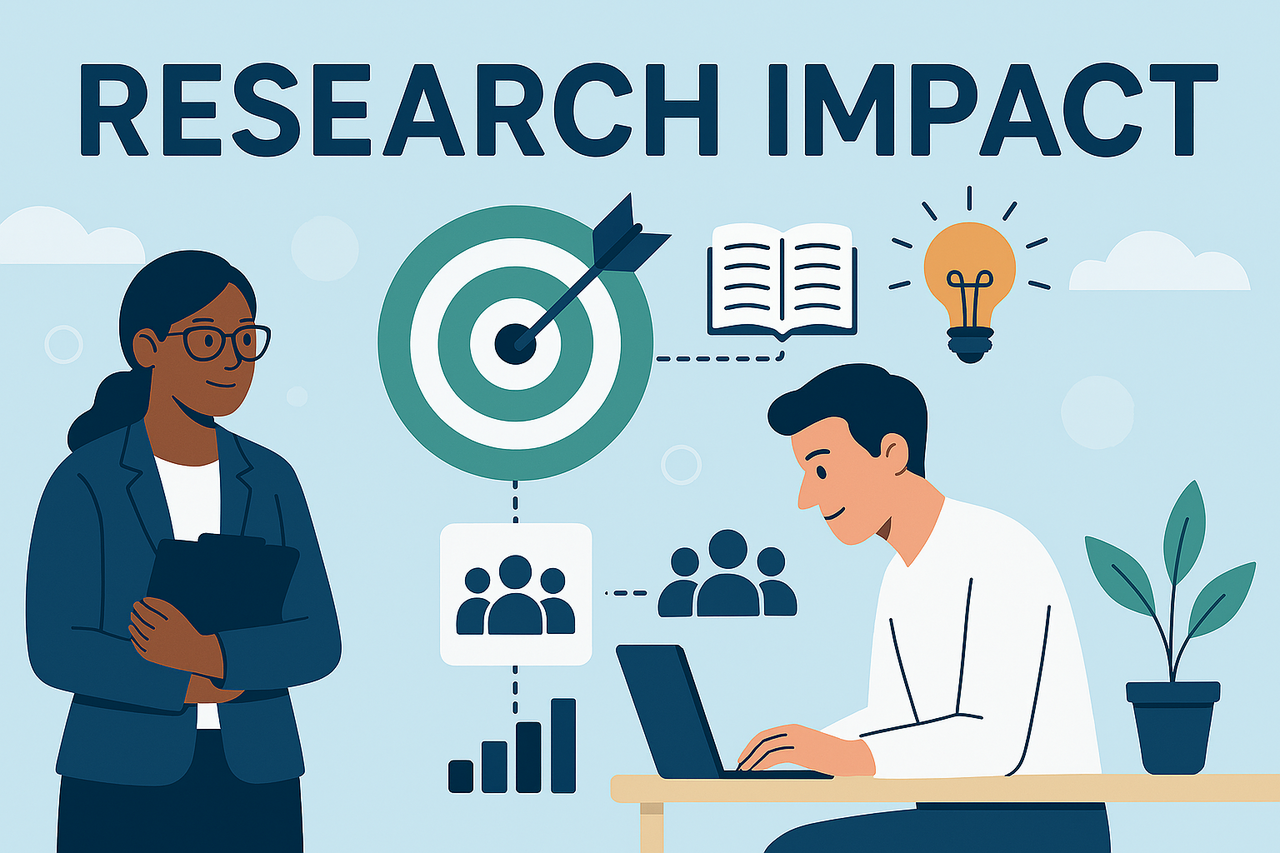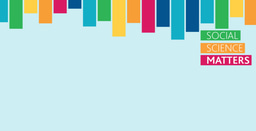How to Maximise Research Impact Through Book Publishing
Published in Healthcare & Nursing, Astronomy, and Social Sciences

Demonstrating ‘research impact’ is more important than ever in an increasingly pressurised and competitive academic funding landscape. Yet measuring research impact is complex and nuanced. Researchers and funders are increasingly looking beyond traditional bibliometrics to consider ‘real-life impact’ and alternative ways to evaluate research, especially to understand the impact of books.
As part of the newly-created Transdisciplinary Social Science books team at Springer Nature, we (a group of commissioning editors) identified 'research impact' as core to our team's values. We identified 10 ways that Springer Nature book editors can support book authors to maximise research impact, including across disciplines:
1. PROVIDING BIBLIOMETRICS – Every book page on our institutional ebook platform Springer Nature Link shows citations, Altmetric (media and policy) mentions and digital downloads. This helps authors to track the impact of their book. Editors also keep an eye on when and where our books are making an impact to inform what we publish in the future.
2. LINKING AUTHORS’ CAREERS AND PUBLICATION GOALS – Our book editors offer personalised advice to help authors navigate the publishing process. This includes choosing the book formats best suited to their current position and future career goals. From early career researchers looking to turn their thesis into a book and to make their mark on a sub-field, to those seeking to influence policy and practice, and to established scholars taking on a Major Reference Work to consolidate a field for large audiences and new students globally. Impact looks different across the researcher life-cycle and our book publishing options support this. One recent author told us in their author satisfaction survey: “the opportunities I have accrued after the handbook publication are vast! Including landing my current new job!”
3. SUPPORTING OPEN ACCESS – We help remove barriers to access by facilitating Open Access books and chapters. Open access publishing enables content to be freely read and downloaded. It makes cutting-edge research more widely visible, helps to boost authors’ profiles, fosters collaboration between disciplines, and more directly reaches policymakers and the general public. We offer support with identifying funders who can cover the chapter or book processing charge. We advise authors to consider potential research impact upfront in their research design and funding bids helps to maximise success; open access charges can also be costed into funding applications.
4. ENSURING DISCOVERABILITY – Making our books discoverable and accessible across subjects is important for enabling impact. We guide authors to use book titles and marketing texts which are clear and include key words to optimise them for search engines to reach their intended audiences quickly. We cross-promote interdisciplinary books across subjects using internal marketing codes to help discoverability online and flag books for different subject conferences. Also, Springer Nature’s ongoing commitment to making our digital content as accessible as possible, ensures that potential reach and impact across audiences is maximised.
5. HARNESSING THE POWER OF PEER REVIEW – We offer a fair and transparent review process. We find diverse peer reviewers (including practitioners) to help authors to consider new perspectives, to identify primary and secondary audiences and how to meet their different needs, which maximises their impact for broad, international audiences. Our book editors add their publishing expertise and market knowledge to support authors in writing their most impactful books for their subject and specific audiences.
6. COMMUNICATING FOR SOCIETAL RELEVANCE – We can give authors guidance on how to write for lay audiences such as: use accessible language, make points clearly and quickly, keep an eye on word count, and speak to bigger picture issues. We encourage authors and series editors to share their messages more accessibly via different media such as podcasts e.g. Hate Crime During the Pandemic podcast. Authors can include integrated media to engage audiences differently. Authors can also consider adding resources for their specific audiences to increase engagement, like teaching materials or student-friendly questions or policy-focussed features and sections. Palgrave is also well known for publishing some flagship ‘trade’ academic titles for a wider audience from authors with good networks and big profiles, such as: Ted Bundy and The Unsolved Murder Epidemic. Our publicity team selectively pitches some titles to the media for broader promotion.
7. GUIDING CONTENT FOR POLICY IMPACT – How can our publications have influence and benefit beyond academia? Editors might suggest publishing a short form Palgrave Pivot or Springer Brief which appeals well to busy practitioners and policy-makers (with useful summaries at the start of each chapter). Authors can also integrate practice and policy recommendations clearly in sections or a specific chapter for those audiences. Open access (OA) options for books and chapters helps to reach non-academic audiences. We encourage authors to connect with global research agendas and consider publishing in our Sustainable Development Goals (SDG book) Series. For longer term impact, consider research design and integrating lived experience or service users and methods of co-production, where relevant, to support more positive outcomes from policy changes. One great example is this book: Prisoner Leaders.
8. SPREADING THE WORD – Our Marketing Guide For Authors and our new book promotion toolkit encourages authors to mobilise their networks and platforms as it makes a big difference to a book's success. We collaborate closely with marketing and publicity to promote our books across multiple channels and campaigns. Authors can consider additional marketing opportunities such as writing a blog for Palgrave Social Science Matters (to promote the positive impact of research), Research Communities, The Source, or our SDG hubs.
9. BUILDING COMMUNITIES – We understand that championing transdisciplinary research is key for solving complex societal challenges. We are at the forefront of specific fields and create new book series to support this, such as Advancing Methods for Interdisciplinarity in the Social Sciences and Palgrave Advances in Sex Work Studies. They help to build communities of thought and ensure that Springer Nature are connected closely to researcher needs. We also seek academic/non-academic publishing partnerships to create change and improve diversity in academia, with Springer Nature joining the UN Women Media Compact to empower women in science.
10. DEI IMPACT – Advocating for DEI in the research community and through our publications is key to achieving positive societal impact. Editors develop an intentional content strategy to review who and what we publish and ensure we give space to underrepresented voices. How we publish (our formats and systems) also impacts our accessibility footprint. Together this determines the longer-term likelihood of our research to influence policy and practice and to empower all communities for positive outcomes. Our commitment is evident in editors’ approach to commissioning and selecting the people we work with, from peer reviewers to authors, to shaping the global spread of chapter contributors and editorial board members. We also support early career researchers to develop from the start of their careers.
Springer Nature editors are invested in supporting authors from the early stages and throughout the book publishing process for maximising positive, long-term research impact.
Read more about impact in this Scholarly Kitchen article and transdisciplinary research in this LSE article.
This blog was developed with Clelia Petracca (Editor) and Marion Duval (Editor) in the Transdisciplinary Social Science book team. Our team publishes innovative books on Criminology, Human Geography and Demography, Science and Technology Studies, Disability Studies and Creativity Studies, led by Editorial Director Rachael Ballard.

Please sign in or register for FREE
If you are a registered user on Research Communities by Springer Nature, please sign in